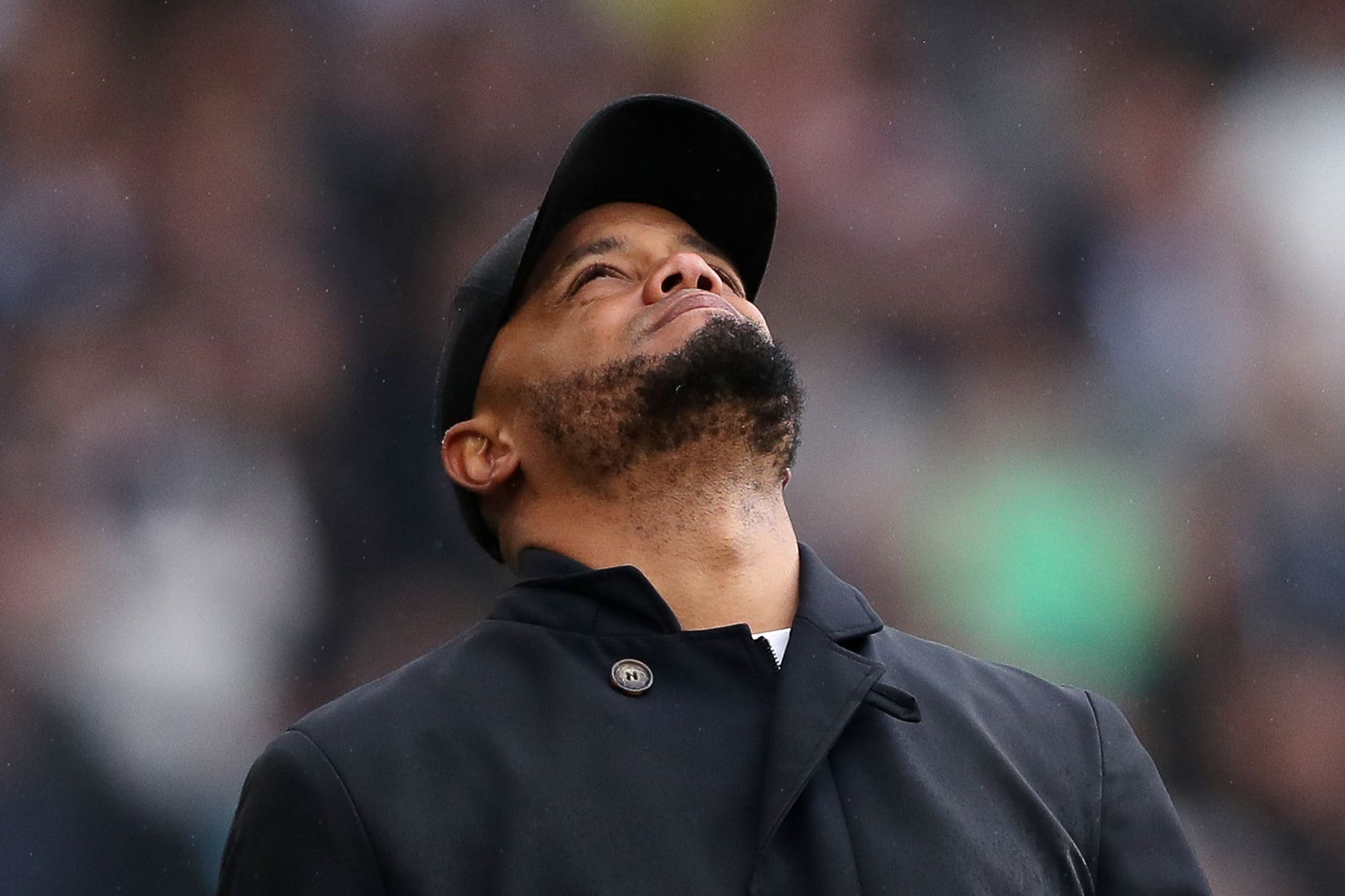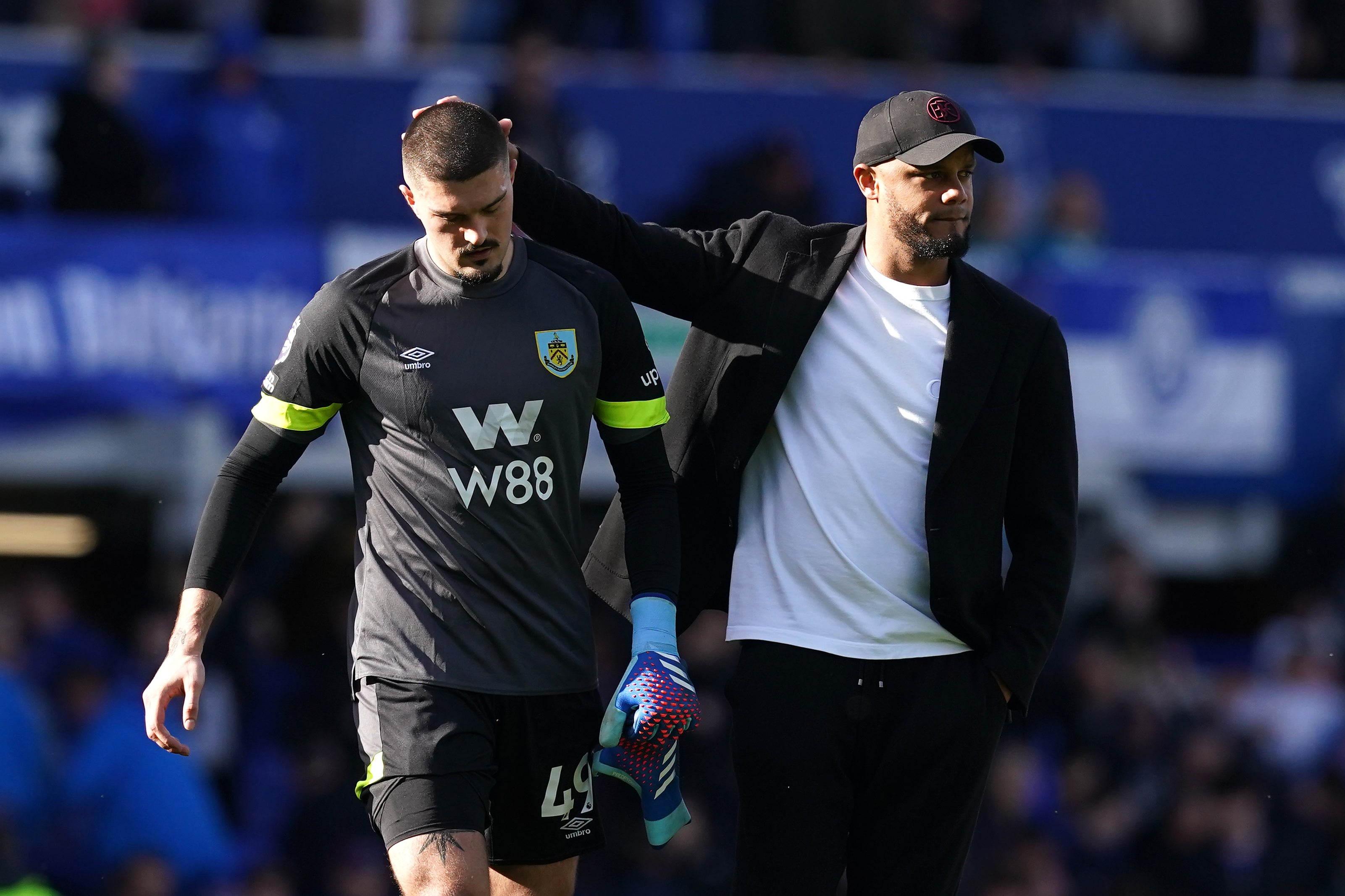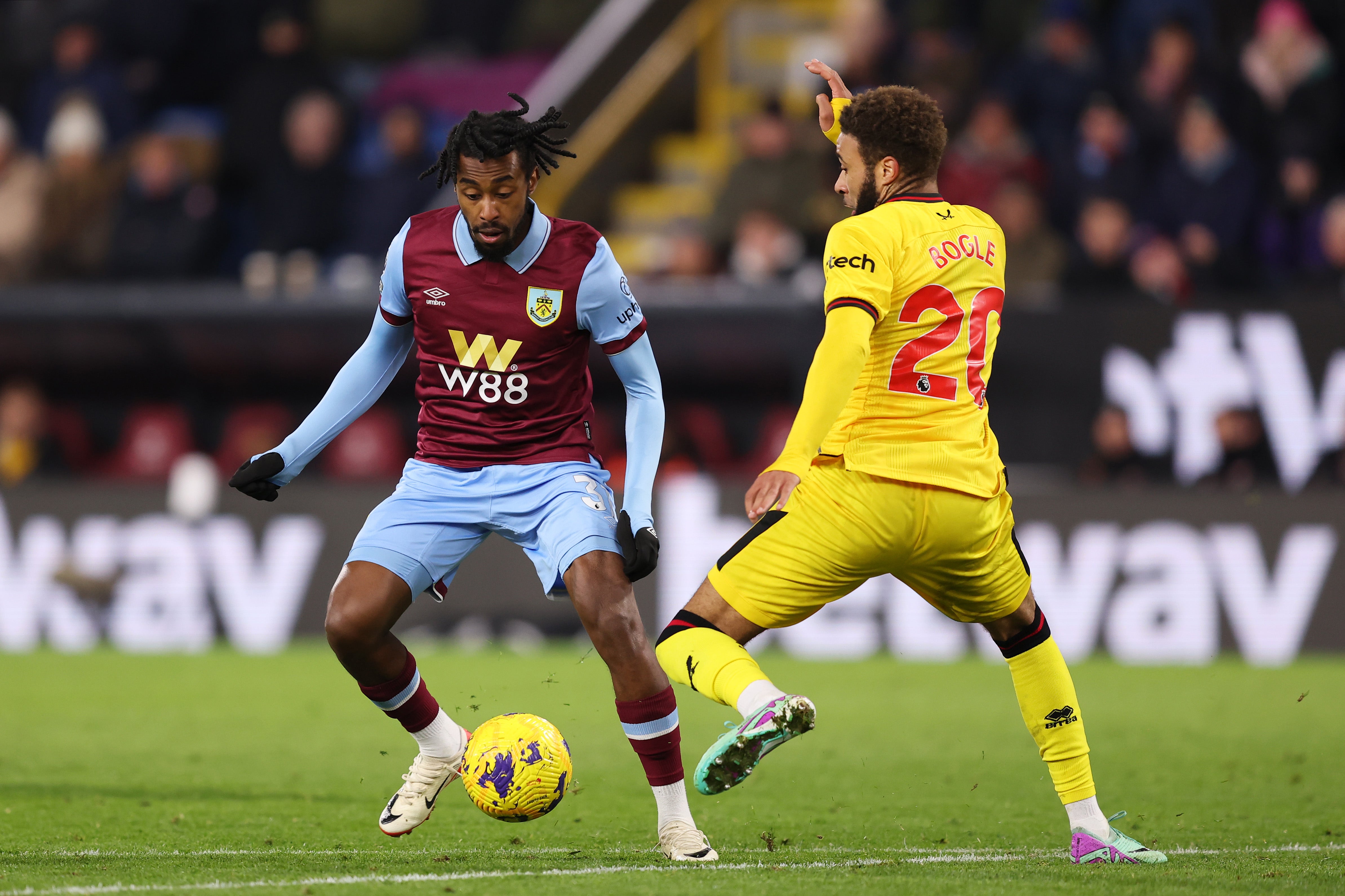Naive Burnley left counting cost of a season that has become a very expensive mistake
In its own way, Burnley’s failure under Vincent Kompany ranks as one of the Premier League’s worst-ever relegations, writes Richard Jolly, and leaves serious questions at every level of the club


Some predictions don’t stand the test of time. It is a little over a year since Pep Guardiola declared it was Vincent Kompany’s destiny to manage Manchester City. It seemed likelier that he might take charge of Chelsea or Tottenham first, two capital clubs expressing an interest in hiring him. Instead, his destiny shifted at Tottenham in May 2024; Saturday’s defeat ratified Burnley’s relegation.
Despite a March-and-April revival, it had felt inevitable for months. But for points deductions to Everton and Nottingham Forest, Burnley would have been cast further adrift sooner. Yet if the reality that Luton and Sheffield United, promoted with them, will also book their return tickets to the Championship would suggest they were powerless to prevent it, that the gulf between the economics of the two divisions is too much to bridge, Burnley were a different case.
In its own way, theirs ranks as one of the Premier League’s worst-ever relegations. A team who got 101 points last season, a club who spent over £100m last summer, a side who only got two wins against the 17 established top-flight outfits – their other three were against either Luton or Sheffield United – Burnley should have done far better than this. The £100m relegations are rarities, though Leeds and Southampton were in that group last season, but this year Burnley are in a weaker bottom six, with a mere 24 points.

Their season has been an exercise in naivety. They were naive in the transfer market, naive on the pitch and, by extension, naive in the boardroom. Their campaign may have been summed up by two results: home and away defeats to Sean Dyche’s Everton. They lost at Turf Moor because of set-pieces. They were beaten at Goodison Park because of a ludicrous mistake by Aro Muric. Dyche, Kompany’s famously pragmatic predecessor, is also his opposite: he earned Everton twice as many points as his old club mustered, even if their 48 was reduced to 40 by deductions.
If there are three pillars to the Dyche blueprint for survival, they are probably home form, set-piece expertise and avoiding errors. Burnley were unfortunate in that the toughest Turf Moor games were frontloaded in the fixture list but they lost their first seven in a row at home; they have the joint-fewest home victories and points, with the fewest goals.
They have conceded 16 goals at set-pieces and scored just five, the lowest number; in 2017-18, Dyche’s Burnley only let in six from dead-ball situations. If the propensity to give goals away in silly fashion was summed up by the week when Muric conceded by slamming a clearance into Dominic Calvert-Lewin at Everton and then allowing a backpass against Brighton to slide under his studs, there were plenty of others; if Burnley could have even halved the number of avoidable concessions, they might have stood a chance. As it is, they have already let in 23 more goals than in 2021-22, when they went down in duller fashion.
And if most are the product of a more ambitious style of play which sometimes earned plaudits, too often Burnley were not good enough at it, undermining themselves, perhaps overestimating their own ability to carry it off. Rewind to August and Kompany argued their opening-day display in a 3-0 defeat to City would be the worst performance Burnley produced all season. He was very wrong.

Yet if they were the club who forgot the basics, they also lost some of the essence of their success last season. Kompany thought it took 120 training sessions and 100 meetings for players to understand his football; it raises the question of why there were so many signings and some of the stalwarts of his promotion-winning side were marginalised.
Muric, those high-profile blunders aside, was an improvement on James Trafford but was sidelined for most of the season. Josh Cullen had spells on the bench when Burnley kept losing without him. Rather oddly, Anass Zaroury and Manuel Benson, two of the breakout stars of last season’s Championship, got a sole league start apiece. Twelve months ago, each winger looked capable of being a hugely profitable sale or a Premier League match-winner. Now they do not.
And Burnley’s strategy of looking to unearth talents and create value has backfired. It is hard to spend £100m on players of such anonymity. Perhaps only the gifted Luca Koleosho has looked like a coup who could bring in a much bigger sum; Jacob Bruun Larsen and David Datro Fofana, who have shown an eye for goal, are only on loan.
By contrast, Burnley will pay £13m for Mike Tresor, whose return stands at no goals and no assists. It matches the statistics of the £14m midfielder Aaron Ramsey. Then there was Trafford, another bet on potential and who ended up dropped. Burnley ignored the importance of Premier League experience, even taking Andros Townsend on trial and not signing him, despite bringing in a host of other wingers. They acquired 17 players last summer but still left a hole in their squad.

Burnley spent a fortune and yet somehow started the season without the left-back they needed. Granted, it didn’t help that the left-back they had last season, Ian Maatsen, will be in a Champions League final just as a winger they had then, Nathan Tella, has won the Bundesliga. Burnley had tried to buy both. Factor in another 2022-23 loanee, Taylor Harwood-Bellis, a better centre-back than Kompany has been able to call upon this year, and the disappearance of Benson and Zaroury and Burnley have paid out over £100m and contrived to end up with a weaker team than they had in the Championship.
If idealism was the recurring theme in Burnley’s blueprint, naivety is a common denominator in the autopsy of their campaign. They underestimated the Premier League. So did Kompany, who won it as a captain and has gone down from it as a manager. He may get no such enticing offers this summer. He has four years left on the five-year deal he signed last year; it may be a reason why Burnley backed him, though it could just be because chair Alan Pace has appeared in thrall to his manager. But with Kompany’s stamp on this squad, maybe another manager would not have kept them up either.
But the sense of failure should be shared. Pace has had two full seasons as a Premier League owner. Burnley have been relegated in both. Given the size of the club and the challenges the promoted sides face, it was always a possibility. But, with sales surely required and most of Burnley’s players’ values depreciating, relegation looks particularly damaging. Their season amounts to a very expensive mistake.
Join our commenting forum
Join thought-provoking conversations, follow other Independent readers and see their replies
Comments
Bookmark popover
Removed from bookmarks